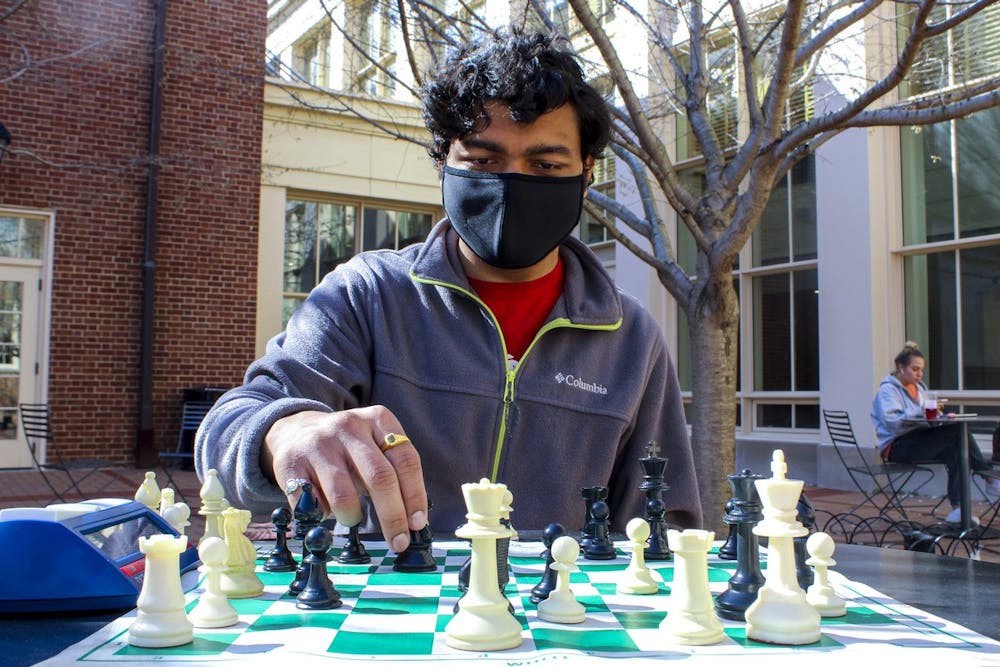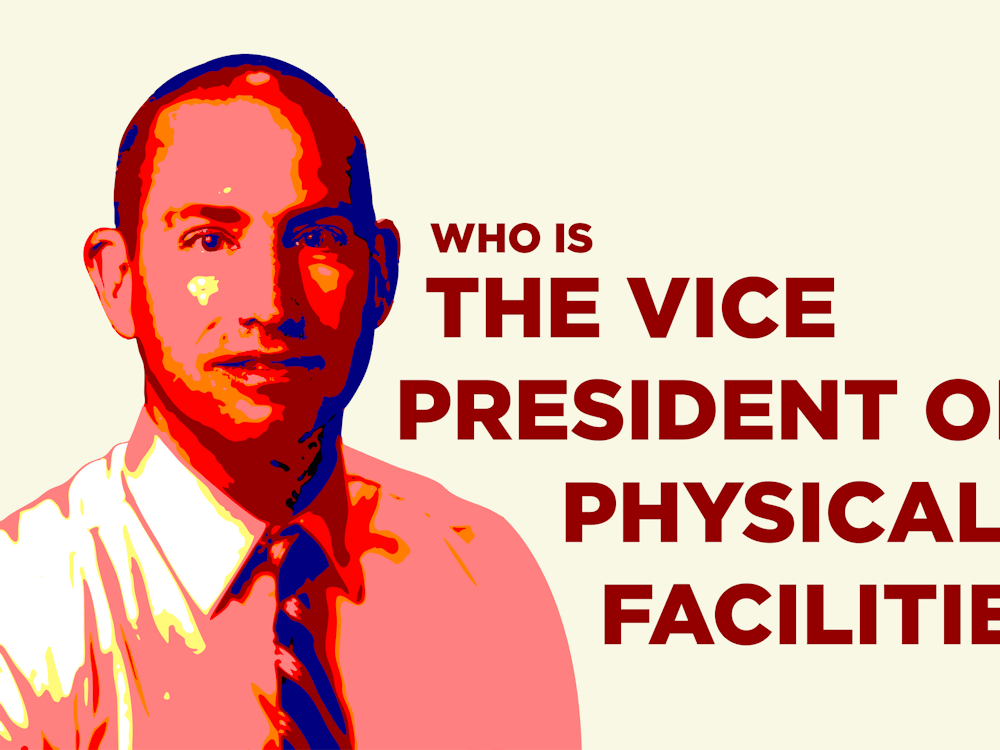The Netflix original limited series, “The Queen’s Gambit,” took the world by storm in early 2021. The main character, Beth Harmon, piqued viewers’ interest in chess as they followed her across the world. Audiences were dumbfounded that a show about chess could be so riveting.
But Ashutosh Pitkar was enamored with the game well before actress Anya-Taylor Joy enthralled viewers as a world-class chess player.
Pitkar, a senior mechanical engineering major and winner of Miami Activities and Programming (MAP)’s chess tournament, has been playing chess since he was 7 years old.
As a child, his grandmother gifted him a chess set. Pitkar had no idea what the pieces were or how they moved, but he learned the game from his father. For three months, his father remained undefeated.
One day, Pitkar finally won. The moment became a stepping stone in his chess journey.
“It was an achievement,” Pitkar said. “Not the best achievement I’ve had in chess, but the first achievement.”
Once he could beat his father, Pitkar moved onto better players to challenge himself and continue learning. A child in Mumbai, India, Pitkar’s father enrolled him in the South Mumbai Chess Academy.
Here, Pitkar learned more than just the rules of the game. He learned theories. He learned the reasons behind moves. He learned how game masters become game masters.
But his chess education began to interfere with his K-12 education. In the lower grades, missing school wasn’t as big a deal. Once Pitkar moved into his junior high and high school years, though, his time studying chess had to be reduced.
“It takes a lot of time, and I have to not study [for school] and do this other kind of study, which is just kind of hard, at least after a certain point,” Pitkar said.
After many years of competing at the national level and even representing India in international competitions, Pitkar made a move more important than any he had made in a chess game: He moved to America.
At Miami University, the academic demands of Pitkar’s mechanical engineering studies forced his competitive chess playing to fall to the wayside. Luckily, he still found opponents in college.
Enjoy what you're reading?
Signup for our newsletter
Cale Estep, a first-year biology major, saw Pitkar one day sitting with a chess board and a chess manual in the Hahne Hall lounge. The rest, he said, is history.
“I asked him if he wanted a challenger, and he was like, ‘Sure,’ and pretty much everyday from then we would meet up in the hall and play chess,” Estep said. “So it was really a great way to just relax after classes.”
Estep said the first time they played each other Pitkar obliterated him. But instead of continuing to just beat Estep, Pitkar took the time to teach his friend some new moves and strategies.
Though Estep said Pitkar could beat him in chess any day, he pointed out that he could beat the chess master in checkers any day. Before they met, Pitkar had never played.
It’s little moments like this that Estep said he’s grateful for.
“I’m glad I got to meet him, just by chance, because I didn’t really expect to actually meet anyone my first year here,” Estep said. “I just thought I was kind of going to stay in my dorm [with] myself the whole time. It was nice to hang out.”
As a first-year, Estep feels bittersweet to see Pitkar graduate so soon. He said no matter the great things Piktar does in the world, he hopes to stay in contact with him.
Adam Hicks, a computer science major and fellow senior, met Pitkar at the start of quarantine. The pair played chess online for a while and have recently been playing in the dorms. Sometimes they play until 1 or 2 a.m.
Like Estep, Hicks has never beaten Pitkar. But the players made the game a fair match: Hicks gets eight minutes to make his moves while Pitkar gets two minutes.
Time is important to the game.
“It’s definitely a big part, and so, if we didn’t have a clock, then I would just think the whole day, and he would move instantly, so it keeps me honest,” Hicks said.
Hicks said he played lots of chess in high school and faced many different opponents, but Pitkar is by far the best he has played.
“Ashutosh is definitely the strongest player that I’ve ever played against,” Hicks said. “It’s not even close. So I think he’s really good. He just doesn’t let people know sometimes.”
Though he’s humble, Pitkar was unable to hide his talents when he won MAP’s chess tournament on March 13. Pitkar said in addition to winning a TV, he enjoyed being able to play new people with different moves.
“I’m sure that I made inaccuracies in my games; I probably made a lot of mistakes,” Pitkar said, “but it’s fun to play those different games with different people.”
Pitkar’s favorite part of chess is figuring out how other people play the game, but not with their pieces — with their minds.
“You interact with people psychologically; connect or disconnect the people and maybe fight them … psychologically and see who can outplay the other, who can think two moves ahead,” Pitkar said.
Just like Beth Harmon in “The Queen’s Gambit,” for Pitkar, it’s all about the feeling.
“I don’t know how to say this, I don’t know how to describe it, but when you play the game, you feel it,” Pitkar said. “It just … you feel it happening. You’re basically trying to prove something. You’re trying to prove that you’re better than the other there by thinking as many moves in advance as possible.”




